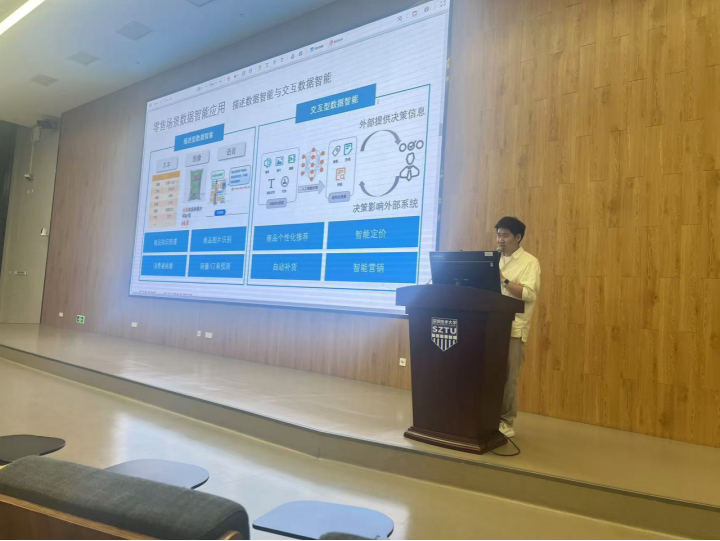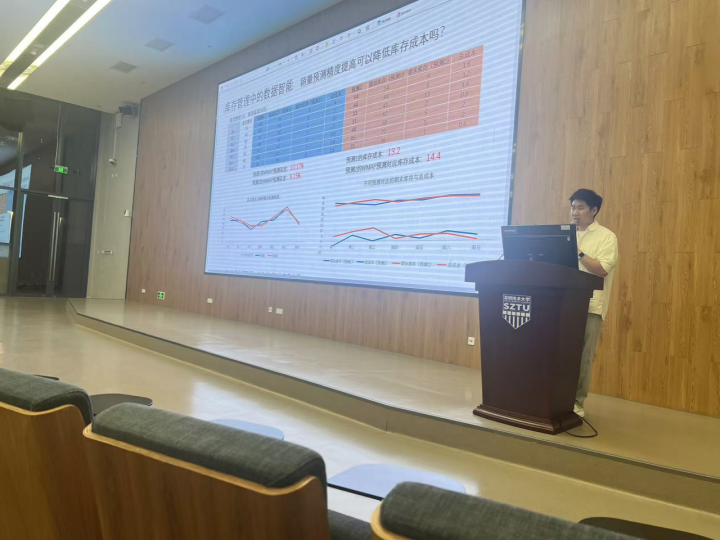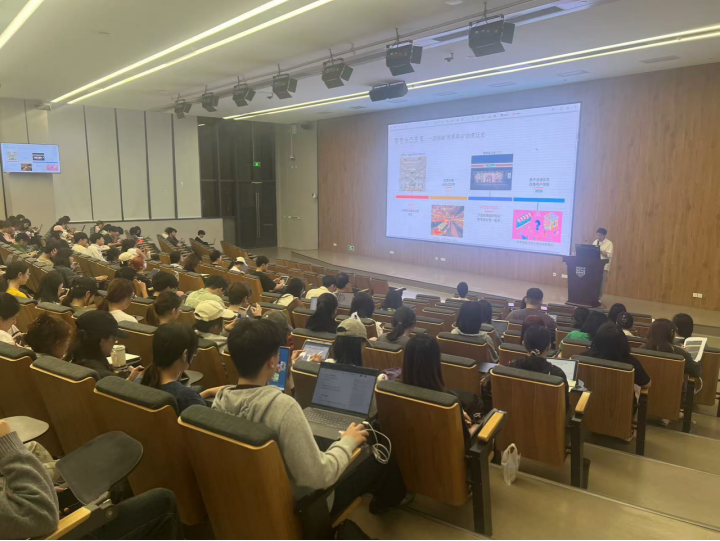On the evening of October 31, 2024, Shenzhen Technology University Business School held a lecture titled “Data Science and Business Negotiation in the Retail Industry” in Classroom C5-106. The event featured Dr. Huiqiang Mao, an algorithm architect at Yongwang Digital Science and Technology and a PhD fromtheCity University of Hong Kong, as the keynote speaker. Dr. Mao shared insights on variousdata science applications within the retail sector, focusingon innovative approaches in inventory management, intelligent recommendation systems, and supply chain optimization.
Dr. Mao presented a detailed demonstration of how data science supports intelligentretail decision-making, including capturing and processingreal-time data. He emphasized the role of data intelligence in inventory management, covering aspects such as demand forecasting, restocking optimization, and inventory turnover improvement. These intelligent applications, powered by sophisticated algorithms, help retail companies better respond to market fluctuations, minimize inventory costs, and enhance operational efficiency.
In the realm of intelligent recommendations, Dr. Mao illustrated how data-driven recommendation systems enable personalized marketing. Through case studies, he explained recommendation algorithms based on customer purchasing behavior, product characteristics, and historical data, which provide each customer with more targeted product suggestions, thereby enhancing customer experience and loyalty. This data-based intelligent recommendation system effectively drives sales conversions and boosts company revenue.

Additionally, Dr. Mao introduced the application of data algorithms in supply chain optimization. He demonstrated how data modeling and algorithm optimization facilitate efficient collaboration and information synchronization across supply chain segments. By analyzing sales trends and inventory data for various products, companies can develop precise supply chain strategies, reduce uncertainties within the supply chain, enable demand forecasting, and automate replenishment, ultimately improving the efficiency of the entire supply chain.

Dr. Mao used multiple case studies throughout the lecture to provide students and faculty with a deeper understanding of data science’s practical applications. For instance, he showcased how a retail company, after implementing a data intelligence system, significantly reduced inventory costs and enhanced market competitiveness through dynamic pricing. Such real-world examples helped students gain a more intuitive understanding of the potential value of data algorithms in the retail industry.

This lecture not only provided students with a deeper understanding of data science applications in the retail sector but also inspired their interest and enthusiasm for exploring the fields of data science and algorithms. Shenzhen Technology University Business School remains committed to building bridges between academia and industry, offering students more opportunities to gain knowledge of cutting-edge technologies and insights and helping them achieve greater success in their future careers.
Contributor: Yihan Gao
Reviewer: Qiulin Yang